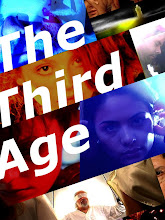McCabe and Mrs. Miller
I've enjoyed a lot of the Robert Altman stuff I've seen, but I've always felt like he keeps a bit too much emotional distance between his characters, and sometimes his relaxed, rambling pacing can make a film feel a bit too long. However McCabe and Mrs. Miller doesn't fall into any of these traps, and it's easily my favorite film of his.
McCabe is in some respects a Western, but it doesn't focus on the violent aspects of the genre, rather it covers the life of a town, as it is built and ultimately torn from the people who built it. One of the most remarkable things about the film is the way that it depicts the building of McCabe's town. When he first gets there, it's a few tents, and as the film progresses, we watch the skeletons of buildings rise up, and get fleshed out until this is a fully functioning town, and that makes the events at the end, when McCabe has not only his town, but his life taken from him, tragic.
If McCabe is the town's father, Mrs. Miller is its mother, only through the union of their sensibilities can they find success. Despite his money, McCabe doesn't have much ambition. He sees no reason to build beyond the tents for the girls, to build a bathhouse or to decorate the prostitute's house. He thinks in terms of short term gains, rather than possibilities of future investment. Mrs. Miller seeks to recreate the luxury of an urban area, and seems to be using the town as a way to get money to open her own place in San Francisco. So, her ambition brings them success beyond what they could have possibly expected.
The film has a pessimistic view of American business. McCabe is an entrepreneur who seems to have acheived the American dream, but there's always someone bigger out there who will not allow him to continue his business. McCabe thinks that big business will play fair, and that he can get more money out of them. However, when they don't get what they want, they don't mess around, they just kill him.
Mrs. Miller is aware of McCabe's naivete, and that's why she leaves. He just can't figure it out, $6250 really is their final offer, if he doesn't pay that, they'll just take the town. That's where the Western attitude really comes out, because this is an essentially lawless territory, the big corporations rule, and McCabe's lawyer can't stop them when McCabe happens to end up dead. It's a situation similar to Lando in Empire Strikes Back, an independent businessman wants to stay under the radar, once he gets too big, he becomes a target.
So, it's appropriate that the killers announce their presence by killing the cowboy. This was a guy who came to the house because he heard it was the biggest around. Once word like that starts spreading, it attracts attention to McCabe and ultimately causes his death.
The end of the film is stunning, McCabe's pursuit is played out with virtually no dialogue. I love the moment where McCabe guns down the huge guy, but it doesn't make what ultimately happens to him any better. Then, there's the haunting final image of Mrs. Miller lying in the opium den. McCabe's decision not to sell means that she is left with nothing, and if she stayed behind, she would probably be treated as nothing more than a common whore. So, she flees, and, distraught, drifts off into an opium haze. Even though she's still alive, her prospects aren't much better than McCabe's.
The film is different from most Altman movies in that there's a stronger character center. There's some of the overlapping dialogue ensemble stuff, but we really get to know the two title characters, and that makes the end of the film quite emotional. Another thing that contributes to this is the score of songs by Leonard Cohen. Having a singer/songwriter score your movie seems to have been quite the trend in the 1970s, and it works really well here. Also, I loved the use of zooms here. That's something you don't see much today, but here it did a great job of emphasizing certain things within the frame.
So, this is a really great film, easily the best Altman I've seen, and one of the best films of the 70s. It's a film that's innovative and really exciting to watch. I'm hoping Altman recaptures some of this quality with the upcoming A Prarie Home Companion.
Related Posts
Short Cuts (6/10/2005)
Nashville (7/8/2006)




No comments:
Post a Comment